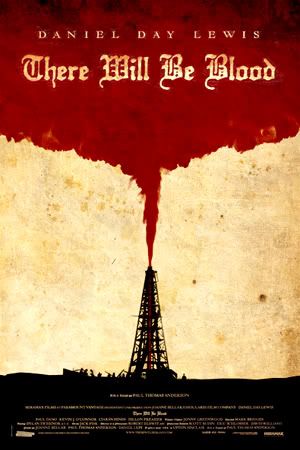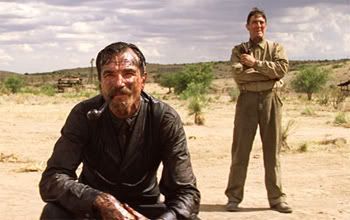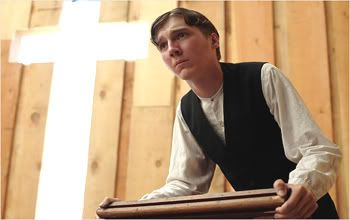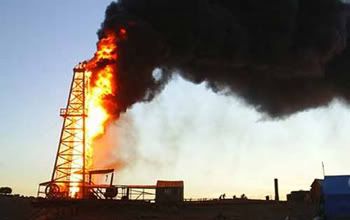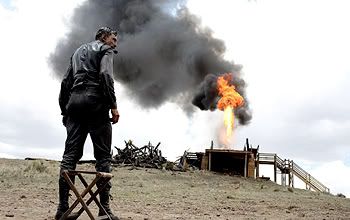+1
I think it has to be a great movie, or at least a movie of great depth, to provoke so many people to have so many views to it; to have so many differing opinions.
I can see how some may find it hard to relate to Plainview as a real person in that he can seem like a person acting. I don't believe this is Day-Lewis acting badly but acting well; showing a mask, a front, only occasionally letting the true emotion show through.
We are asking if Plainview truly loved his adopted son. Isn't that a sign of a great movie; in real life we only get to see certain parts of people, we base our beliefs about people by their actions and words but never can truly define someone else's feelings and thoughts. Even if they told us how it is we know that they may not be telling the truth, or at least the whole truth.
My view is that Plainview tried to be a good man, the kind of man that other men wanted to be like; sticks to his word, looks after his men, is strong, a good father and has a strong sense of fairness, right and wrong, and isn't bullied but steps in to stop bullying. Yet, despite this, he is human and also believes he can hide behind these attributes whilst he pursues his own, single-minded ambitions and over these ambitions he needs to believe he is in control. I also believe that he cares for no-one, believes that no-one's life matters in comparison to his own.
He maybe took the dead man's son out of a sense of duty he felt, to live up to the standard he thought would be expected of him. Later though, we see him using the boy as a kind of gimmic, saying that he runs the company with him. When that gimmic, that means of helping to sell his services to the people of a new oil rich town, is damaged, he flips. I don't think that it was his love for the boy that made him attack Eli.
Everything that Plainview did was in order to enhance his own empire but he had the control wrested from him by having to submit to Eli. When he finally sees that his empire has no future he takes control back and "rights the wrong" of having to submit to such a man as Eli.
Those are my thoughts but, as in real life, we can admit to ourselves that we don't have the whole picture and may be wrong and that, surely, shows a great depth to the movie.
__________________
You think I'd speak for you? I don't even know your language.
 If the minister ever said anything about getting medical treatment or rehabilitation for the little boy, I don't remember it. It may have happened but I just don't recall. I do recall that in what seemed like almost immediately after the blowout that ruptured the kid's eardrums, the preacher gets in the oilman's face demanding a royalty payment and the oilman, with more important things on his mind at the moment--and I think the injured child was at the head of that list--kicked the preacher's sorry butt. I also remember that when the preacher later got the power over him to insist on his public "redemption," he made the oilman shout out that he had abandoned his child. But wasn't that after he had already sent the kid away to a school for the deaf?
If the minister ever said anything about getting medical treatment or rehabilitation for the little boy, I don't remember it. It may have happened but I just don't recall. I do recall that in what seemed like almost immediately after the blowout that ruptured the kid's eardrums, the preacher gets in the oilman's face demanding a royalty payment and the oilman, with more important things on his mind at the moment--and I think the injured child was at the head of that list--kicked the preacher's sorry butt. I also remember that when the preacher later got the power over him to insist on his public "redemption," he made the oilman shout out that he had abandoned his child. But wasn't that after he had already sent the kid away to a school for the deaf? 

